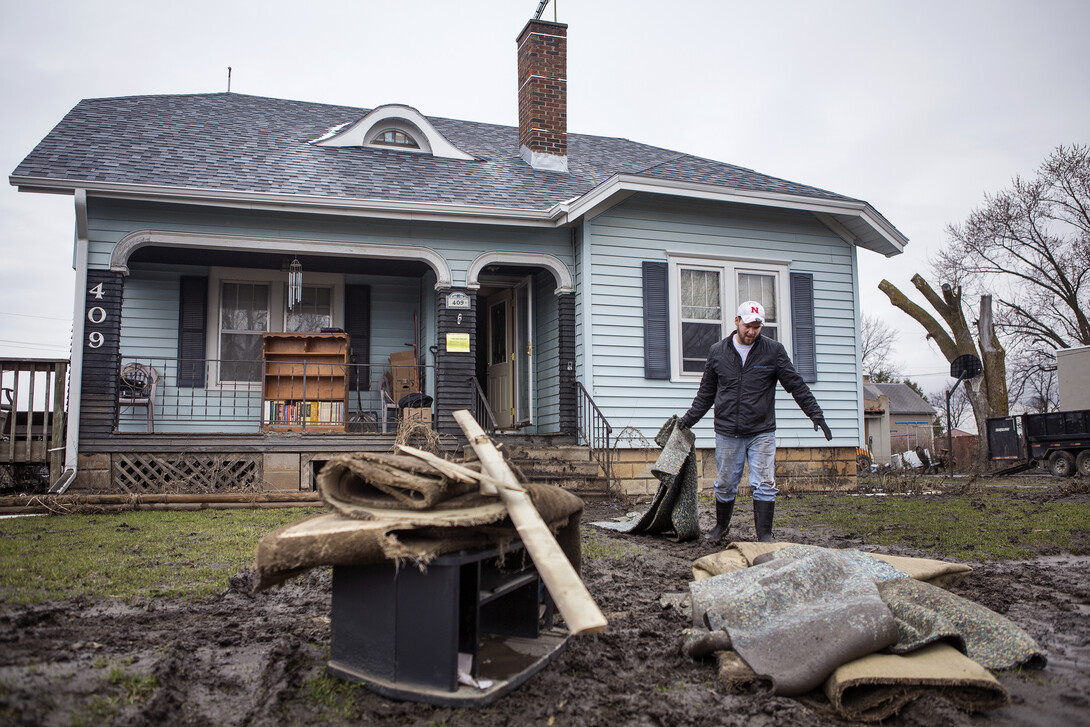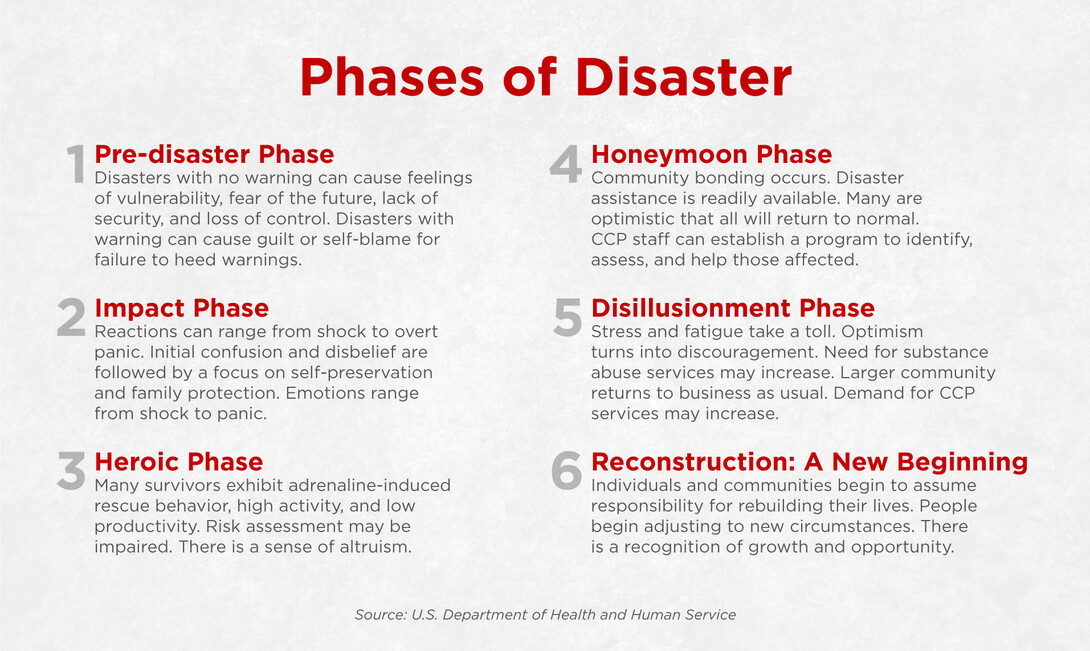
Nebraskans have been slowly cleaning up the damage since historic flooding rolled across areas of the state in March. Recovery has been a slog and — in some cases — has drained emotional and mental reserves in communities.

Mental health professionals and psychological first aid experts from the University of Nebraska Public Policy Center are addressing flood-related mental health needs through the recently-launched Nebraska Strong Recovery Project. The effort, which is training outreach counselors across the state, is led by Denise Bulling, a senior research director and licensed mental health practitioner with the Public Policy Center.
“These counselors are members of the community who work with survivors and organizations to help support individuals and communities as they experience the highs and lows of recovery,” Bulling said. “They talk with survivors, listen to their stories, and help them problem solve and connect them to resources.”
Bulling said there are phases in disaster recovery — pre-disaster, impact, heroic, honeymoon, disillusionment and reconstruction — that survivors experience. Counselors in the program are trained to spot these phases and help individuals work through them.

“Once people understand the phases of disaster, and what the common reactions are, they’re able to put their own reactions in perspective and realize what they’re experiencing is common and that there are ways to cope with the stress of recovery,” Bulling said. “When you’re in the middle of it, it’s hard to see and recognize it. These outreach workers help them understand what they’re going through and give them some tools to help cope and move forward.”
Outreach counselors were identified by the state’s behavioral health regions and are paid through the grant funding. They must be certified in five trainings held throughout the year. Bulling said Public Policy Center staff are also helping communities collect data on the contacts made by the outreach counselors, and have created branding and supplemental materials for the project, to get the word out about available program resources, as well as establish confidence that the program is legitimate.
Bulling stressed that the program is free and anonymous to anyone affected by the disaster — nearly everyone in the state. While outreach workers are in the communities, the Nebraska Rural Response Hotline — 1-800-464-0258 — is also serving as a touchpoint for anyone who needs help.
Bulling and her team are well-prepared for the recovery process in Nebraska. She has worked on countless disasters across Nebraska and the United States, including the Hallam tornado in 2004, the California wildfires in 2017, and Hurricane Maria in Puerto Rico.
“We have a longstanding role in disaster preparedness and recovery, and we have a longstanding partnership with the state and voluntary agencies,” Bulling said. “For us, it’s important to help the state and its residents access all available resources to recover emotionally after a disaster.”







